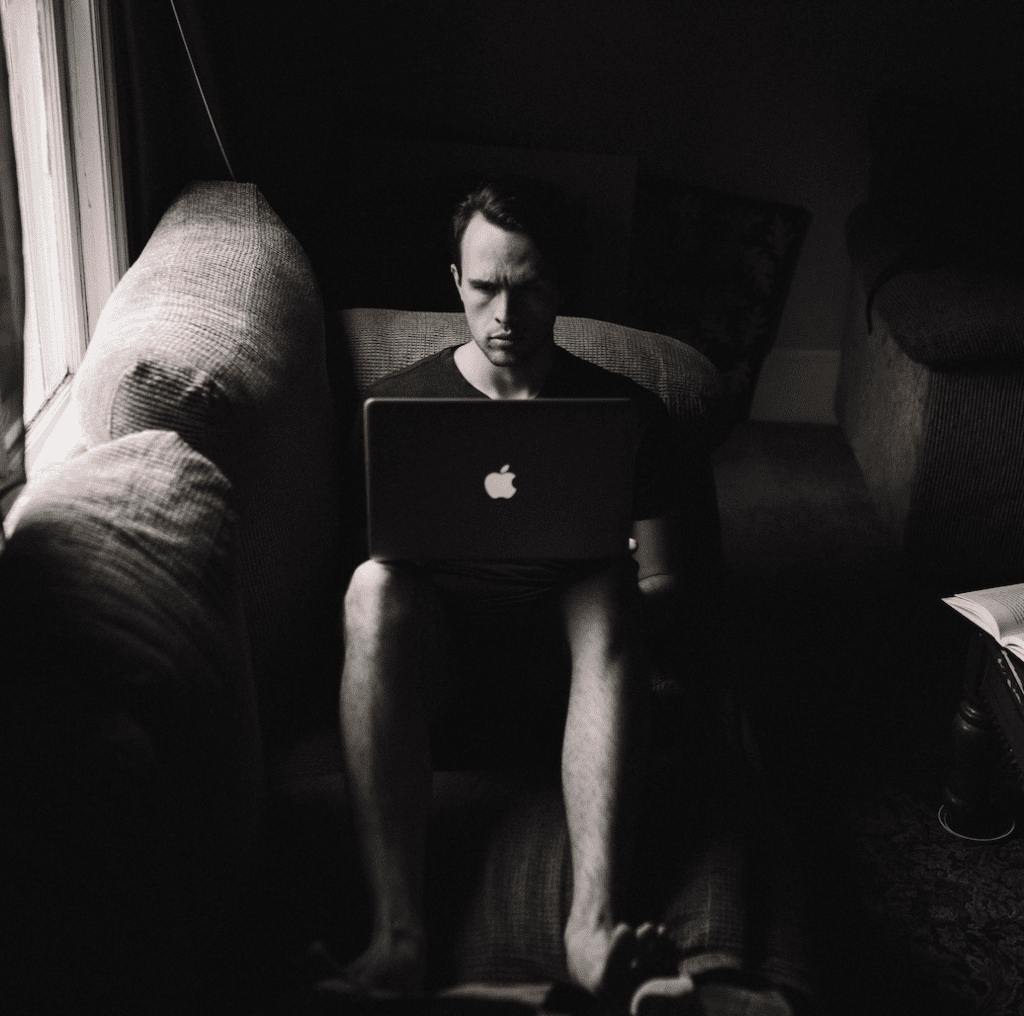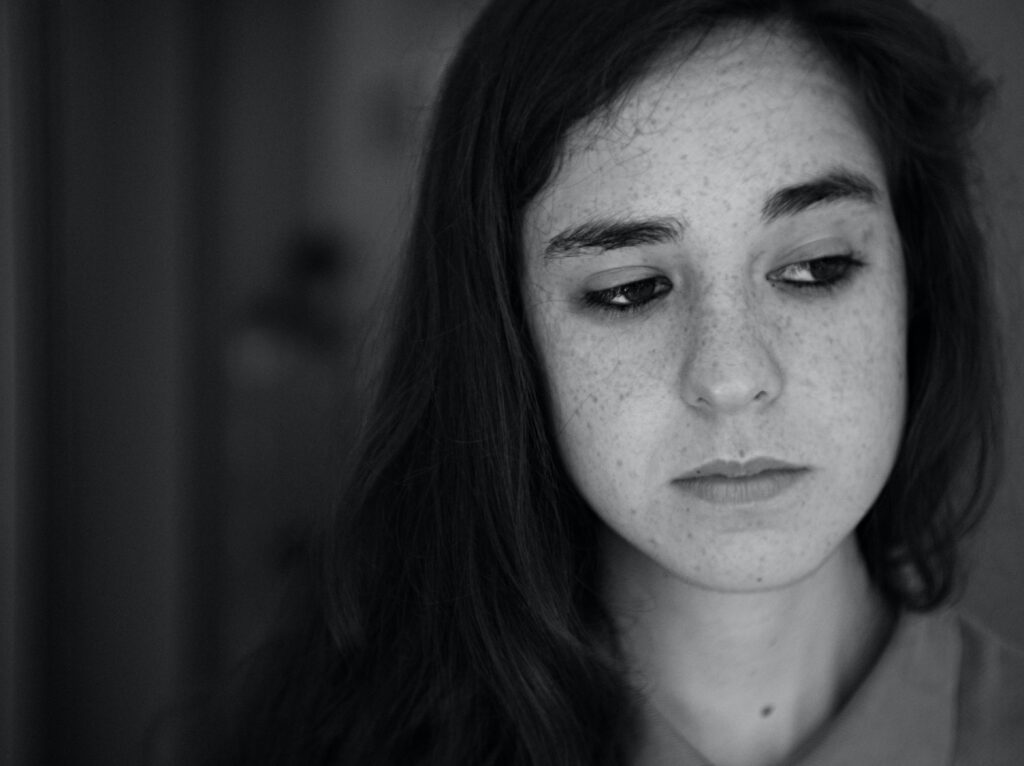OCD can lead to intense feelings of anxiety. This is especially true when the condition is left untreated. Many people with OCD get these anxious feelings mixed up with the root cause. Most in our community have found that working with an OCD therapist also addresses their anxiety and has brought them back to a better quality of life.
It’s not uncommon for members of the OCD community to develop other physical and mental health conditions. This is often due to the reduced quality of life and high levels of social and occupational impairment that can come with untreated OCD. Anxiety, as we’ll see in a moment, is an intrinsic part of the OCD cycle. The good news is that getting help for your OCD can help reduce anxiety.
Anxiety Is a Symptom, OCD Is the Cause
Anxiety is often a bi-product part of the OCD cycle. It’s often there with feelings of discomfort, guilt, or shame when a person with OCD starts unintentionally giving meaning to an intrusive thought. Remember: everyone has intrusive, unwanted, and “ego-dystonic” thoughts. (An ego-dystonic thought is entirely against what a person wants and who they believe themselves to be.)
People without OCD can shrug an intrusive thought off and carry on with their day. Even people with OCD aren’t bothered by all intrusive thoughts, just the ones they get stuck on. When people with OCD assign danger to the thought and fixate upon it, anxiety begins to take hold.
The highly uncomfortable, anxious feelings result in a strong urge to perform a compulsion. That compulsion is meant to relieve that anxiety—but it only does so for a bit. The more you try to respond to these distressing thoughts, the more frequently and intensely they return. The distress of these negative recurring and intensifying thoughts causes the cycle to continue.
Being caught in this self-perpetuating, anxiety-provoking, vicious cycle of OCD can cause a person’s life to feel derailed. People with OCD spend more of their time in distress, obsessing, feeling anxiety, and performing compulsions, and less of their time doing what they need, want, and love to do in life.
Let’s look at a couple of real-world examples of how the OCD-anxiety complex plays out.
Scenario 1:
David walks by a playground and inadvertently maintains eye contact with a child. David is not sexually attracted to children and finds the very concept disturbing. Yet an intrusive thought materializes:
“Am I attracted to that child?”
“Does this mean I want to do something to this child?”
David becomes unsure if he really would act on this. Because of this uncertainty, he starts to feel the need to exert some control over this feeling. OCD is characterized as the “doubting disease,” and David begins to doubt whether he can ever really trust himself and enacts a compulsion. Compulsions give a mistaken feeling of control.
In this instance, David’s primary compulsion is to seek reassurance that he is not a pedophile. He does this by devoting a significant amount of his day to researching the subject of pedophilia. This is an attempt to gain certainty about whether he is a pedophile.

Besides this constant research compulsion, David also engages in avoidance compulsions. He avoids walking by playgrounds—taking alternate routes between his apartment and the subway station. When his best friend asks him to babysit his goddaughter for a few hours, David makes up an excuse for why he can’t, knowing that, at some point, he’ll run out of feasible reasons not to lend a hand.
While these compulsions may relieve David’s doubt and anxiety in the short term, it gives more significance to his thoughts. The continuous cycle of intrusive thoughts followed by compulsions leads to David feeling more anxiety.
David’s inability to spend time with his goddaughter puts undue strain on his relationship with her and his best friend. His avoidance of anywhere he may encounter children severely disrupts the normal rhythm of his life, and much of his time is being eaten up by long hours seeking reassurance online.
Scenario 2:
Rebecca is a new mother. She loves Una more than anyone or anything she’s ever loved. Like an estimated 3-5% of new mothers, she has postpartum OCD.
“Do I want to hurt my child?”

That’s the recurring, ego-dystonic, and anxiety-provoking thought that enters Rebecca’s head. Though she couldn’t fathom how anyone could ever harm a child, Rebecca suddenly begins to wonder if she could harm a child, even her own. She becomes highly anxious and mitigates the risk she perceives by limiting the amount of time she’s alone with Una.
Avoiding contact with her child makes Rebecca’s fears worsen as she considers the possibility of her partner, family, and friends needing to step in and raise Una, preventing the two of them from bonding in a natural, healthy way.
As with the previous example, Rebecca’s doubts about whether these thoughts are significant result in long bouts of Googling in an attempt to find reassurance that these thoughts aren’t linked to who she is.
The avoidance and reassurance give temporary relief. The compulsions Rebecca uses to keep these obsessions at bay only serve to distance her from her child, husband, family, and friends. This avoidance, plus the constant need to reassure herself that she isn’t capable of hurting Una, perpetuates the OCD cycle and intensifies her anxiety. As time passes, this anxiety can manifest in more and more areas of her life.
How an OCD Specialist Can Help Someone Struggling With Anxiety and OCD
A therapist with specialized training in OCD is very familiar with seeing people who struggle with anxiety. Because of this, OCD specialists build treatment plans with anxiety in mind.
An OCD specialist will provide an evidence-based treatment plan. They’ll tailor it to your unique needs and address the root issues causing your anxiety. Their goal is to get you back to living your life and doing the things you love.
During your first couple of sessions, an OCD specialist will focus on the root issue. This, in turn, treats the anxiety because the treatment is targeting the core issue—OCD. As you begin your treatment journey with them, they’ll provide you with a personalized and structured exposure and response (ERP) therapy plan.
A wealth of evidence demonstrates that the most effective treatment for OCD is exposure and response prevention therapy. In fact, psychologists developed ERP in the 1970s specifically to treat OCD. It’s important to know that more generalized, talk-based therapy, while often effective in treating other mental health disorders, can harm people with OCD and worsen their symptoms.
That’s because people with OCD tend to place too much importance on the content of their thoughts. Talk therapy hones in on that content, causing them to ruminate. And that’s a problem.
Unlike traditional talk therapists, the ERP therapist isn’t working with you to gather evidence for whether a thought is valid or not. They’re focused on helping you lean into and accept the uncertainty of the obsessions by helping you manage your compulsive responses. Their goal is to free you from the cycle of obsessions and compulsions so you can get back to living your life and doing the things you love.
ERP is most effective when the therapist conducting the treatment has experience with OCD and specific training in ERP. At NOCD, all our therapists receive ERP-specific training and specialize in treating OCD and related anxiety disorders. Book a free, 15-minute call with our team and get matched with a specialty-trained, licensed NOCD therapist who is committed to treating your OCD and the anxiety that comes with it.
As you progress through your ERP sessions, your NOCD therapist will regularly check to see if the anxiety you’re experiencing in your life is decreasing. They’ll work with you to create a personalized treatment plan to get you back to living your life.
